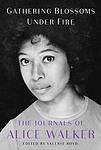Alice Walker
Alice Walker is an acclaimed American author, poet, and activist best known for her novel 'The Color Purple,' which won the National Book Award and the Pulitzer Prize for Fiction. She is also recognized for her works in feminism and social justice, with a focus on issues of race, gender, and class.
Books
This list of books are ONLY the books that have been ranked on the lists that are aggregated on this site. This is not a comprehensive list of all books by this author.
-
1. The Color Purple
Set in the early 20th century, the novel is an epistolary tale of a young African-American woman named Celie, living in the South. She faces constant abuse and hardship, first from her father and then from her husband. The story unfolds through her letters written to God and her sister Nettie, revealing her emotional journey from oppression to self-discovery and independence, aided by her relationships with strong women around her. The narrative explores themes of racism, sexism, domestic violence, and the power of sisterhood and love.
-
2. Possessing the Secret of Joy
The novel explores the life of Tashi, an African woman who voluntarily undergoes the traditional ritual of female circumcision, a decision that haunts her as she moves to the United States, marries, and bears children. The emotional and physical repercussions of this act, along with her struggle to understand and reconcile with her cultural heritage, form the heart of the story. The narrative presents a powerful critique of the practice, highlighting its traumatic consequences on women's lives while also exploring themes of cultural identity, tradition, and personal freedom.
-
3. The Third Life Of Grange Copeland
This novel explores the harrowing journey of an African American man in the rural South, who, after years of enduring economic hardship and the oppressive racial dynamics of the mid-20th century, abandons his family in search of a better life. The narrative delves into the consequences of his actions, particularly on his wife and son, and examines the cycle of violence, poverty, and despair that plagues his community. As he returns home years later, seeking redemption and a third chance at life, the story poignantly addresses themes of resilience, the impact of systemic racism, and the possibility of personal transformation amidst seemingly insurmountable challenges.
-
4. Meridian
The novel explores the life of a young African American woman in the 1960s and 1970s as she navigates the civil rights movement in the South. Through her journey, she grapples with the complexities of social change, personal sacrifice, and the struggle for racial equality. The protagonist's commitment to activism leads her to confront her own past traumas and the toll that relentless activism can take on one's personal life. As she evolves, she embodies the resilience and transformation that parallel the tumultuous era she is a part of, ultimately seeking a path that harmonizes her own well-being with her dedication to social justice.
-
5. In Search of Our Mothers' Gardens: Prose
This book is a compilation of essays that explores the struggle of African American women throughout history, as well as the author's personal journey as a writer. The author uses the metaphor of a garden to represent the creative spirit of African American women, which was often suppressed or ignored due to racial and gender discrimination. The essays discuss a wide range of topics, including civil rights, literature, and the author's own experiences, providing a powerful examination of African American women's history and culture.
-
6. In Search Of Our Mothers' Gardens: Womanist Prose
This compilation of essays delves into the struggles and achievements of African American women throughout history, exploring themes of race, gender, and creativity. The author reflects on the lives of historical figures, personal experiences, and the broader cultural heritage that has often been overlooked or suppressed. She coins the term "womanist" to describe a form of feminist thought that specifically addresses the unique experiences of black women, advocating for their strength, resilience, and the recognition of their contributions to society. The work is a celebration of the artistic and spiritual legacies passed down from the author's ancestors, particularly the metaphorical gardens cultivated by generations of women who, despite facing numerous adversities, managed to express their creativity and preserve their cultural identity.





